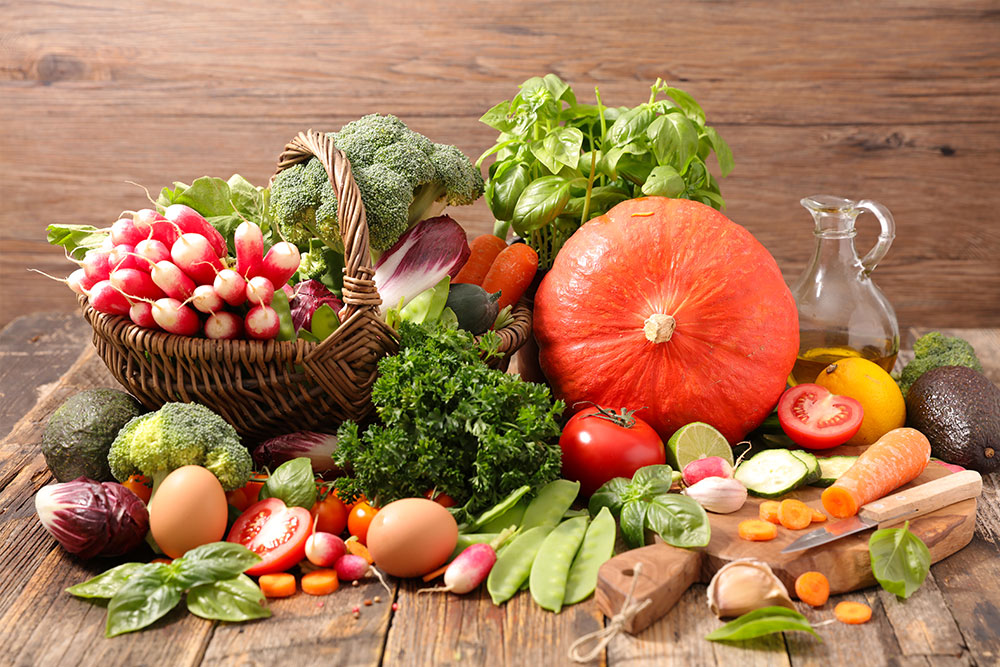It’s well-known that a balanced diet and some form of exercise on a daily basis ensures good health. However, as people around the world become more aware of what constitutes healthy living, the internet is flooded with copious amounts of information of what to do and what not to follow. So how does one differentiate fact from fiction? Dr Eileen Canday, head dietician and head of department, nutrition and dietetics, Sir HN Reliance Foundation Hospital, shows the way and busts five common nutrition myths.

1. Myth: Frozen food is less nutritious
Frozen foods are items subjected to rapid freezing so as to improve their shelf life. Ensuring that the food stays fresher for a longer period of time involves addition of preservatives, and this has propagated the myth that the nutritional value of fruits and vegetables is affected in the process.
Fact: Dr Canday explains that some amounts of vitamins and minerals are lost during the transportation of fruits and vegetables (which is true for the ones you get at local markets). However, besides that, nothing changes when it comes to frozen food. The items are plucked and immediately frozen in a well-controlled environment. “This ensures locking the best of vitamins and minerals and preserving it in a safe manner.” However, she warns, it is important to check for added sugars or unnecessary preservatives in frozen foods.

2. Myth: Detox diets cleanses our bodies
The body needs timely detoxification due to the stressors (pollution, lifestyle choices including smoking, drinking and consuming processed food) it is put through every day. It is believed that detox diets have anti-ageing and anti-inflammatory properties as the ingredients involved are all-natural.
Fact: The body has its own elegantly designed system for purging out toxins— the liver and kidneys. Dr Canday elaborates, “Balanced and adequate nutrition is required for those organs to function optimally and perform the function of detoxification.”

3. Myth: Skipping meals will help in weight loss
Another idea that was widely propagated is, ‘the lower the calories, the rapid the weight loss’. The idea behind this is that skipping meal compensates for the extra calories consumed earlier, and helps your body regulate its metabolism.
Fact: Dr Canday is quick to dismiss this saying, “Skipping meals decreases the body’s metabolism to compensate for the lack of energy.” She further adds that one tends to compensate for the meal skipped, and in the process, ends up consuming more calories.

4. Myth: Raw vegetables are more nutritious than cooked ones
It’s generally assumed that salads/raw fruits and veggies are more nutritious than the cooked version as having them in their natural form ensures optimum nutrient consumption.
Fact: Dr Canday states that cooking increases the nutritional value of some vegetables. For example, cooked carrots are more nutritious because the process breaks down the tough cellular wall that encase the beta-carotene. While cooked tomatoes have higher amounts of lycopene (cancer fighting component) than raw ones.

5. Fat free and low fat foods are better than full fat versions
You must have come across several articles, videos, and infographics which further the thought that fat free foods are healthier as compared to the full fat versions, and the latter is a storehouse of ‘bad fats’ only. It’s usually the first thing that you are asked to cut from your diet if you want to be healthy. But is it true?
Fact: Dr Canday partially agrees with this, and says, “When it comes to meat and some dairy products, it is generally true that lesser the fat, the better.” But this is not true with packaged products like salad dressings and biscuits, as they contain added preservatives to ensure they have a long shelf life. Dr Canday says, “Fat removal is generally compensated with sugar addition to make the food more palatable.”
Please note: While most food products you find will have their “nutritional information” and labels like “all organic”, “all natural”, and “fat free” on their packages, Dr Canday suggests checking their reliability by doing some research on the company where the product originated from, as the information may not always be credible.